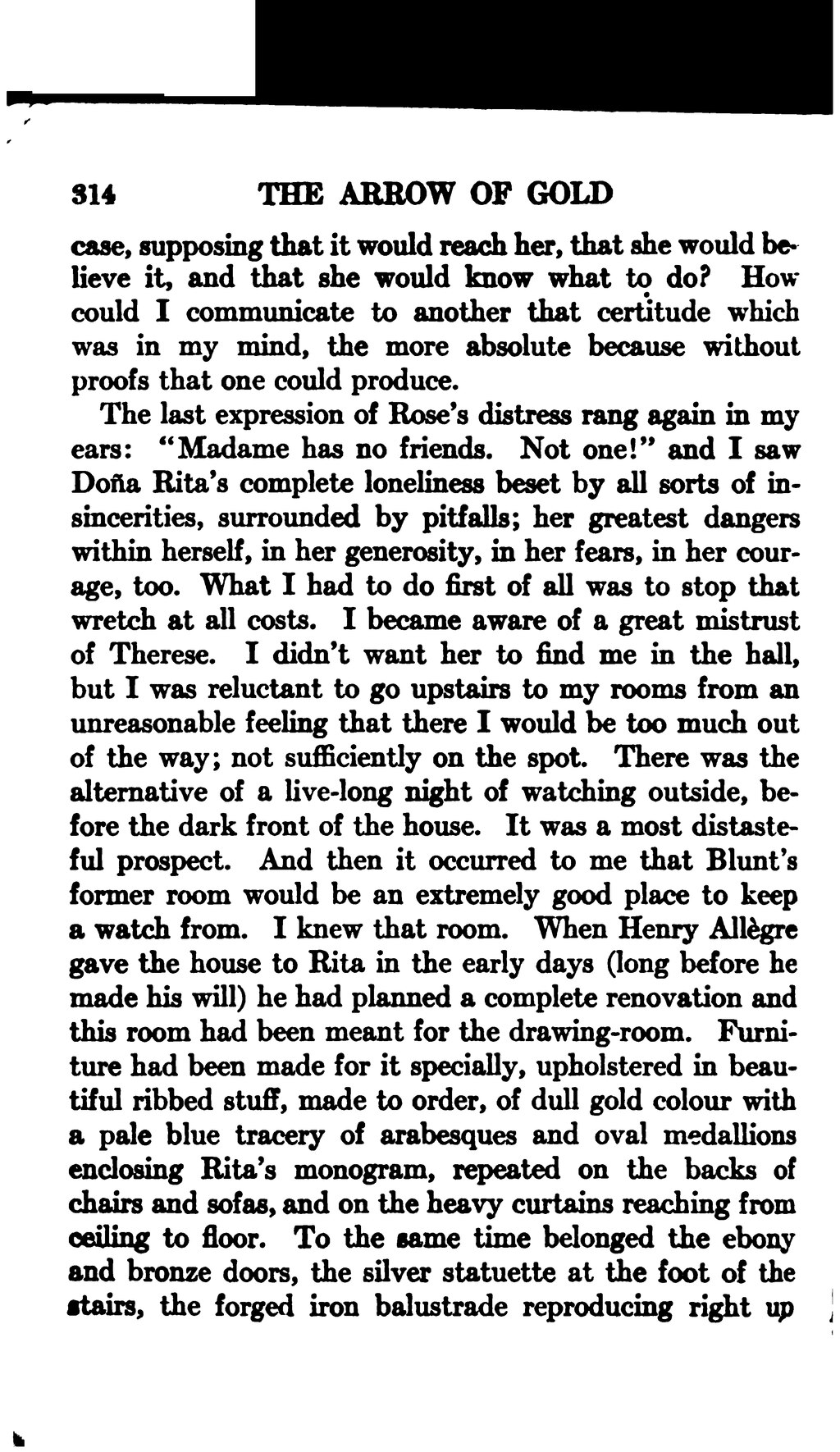case, supposing it would reach her, that she would believe it, and that she would know what to do? How could I communicate to another that certitude which was in my mind, the more absolute because without proofs that one could produce?
The last expression of Rose's distress rang again in my ears: "Madame has no friends. Not one!" and I saw Doña Rita's complete loneliness beset by all sorts of insincerities, surrounded by pitfalls; her greatest dangers within herself, in her generosity, in her fears, in her courage, too. What I had to do first of all was to stop that wretch at all costs. I became aware of a great mistrust of Therese. I didn't want her to find me in the hall, but I was reluctant to go upstairs to my rooms from an unreasonable feeling that there I would be too much out of the way; not sufficiently on the spot. There was the alternative of a live-long night of watching outside, before the dark front of the house. It was a most distasteful prospect. And then it occurred to me that Blunt's former room would be an extremely good place to keep a watch from. I knew that room. When Henry Allègre gave the house to Rita in the early days (long before he made his will) he had planned a complete renovation and this room had been meant for the drawing-room. Furniture had been made for it specially, upholstered in beautiful ribbed stuff, made to order, of dull gold colour with a pale blue tracery of arabesques and oval medallions enclosing Rita's monogram, repeated on the backs of chairs and sofas, and on the heavy curtains reaching from ceiling to floor. To the same time belonged the ebony and bronze doors, the silver statuette at the foot of the stairs, the forged iron balustrade reproducing right up
